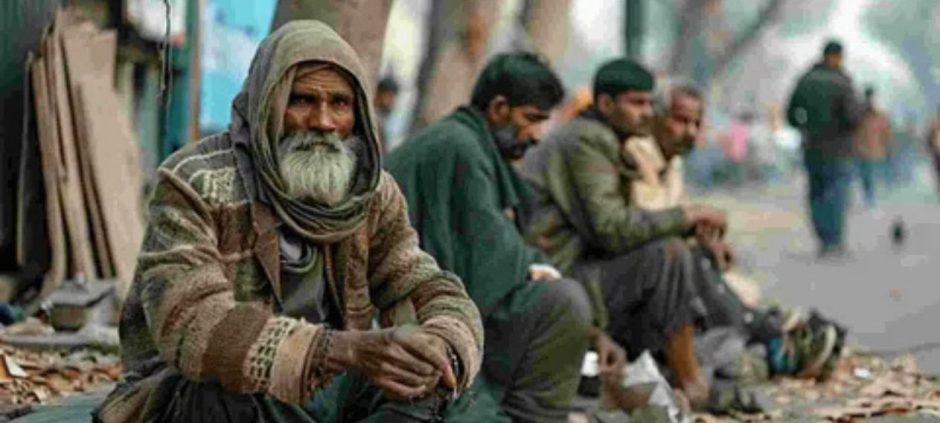Every day, people in Pakistan face the same little experiment: stopping at a traffic light, seeing someone hold out a cup, and asking themselves, Should I give or not? In Pakistan, we give from the heart. But we also need to give with our eyes open. Some hands are genuinely needy; others are part of a bigger scheme.
Here are some practical guidelines to help you make smarter choices when offering charity and avoid getting tricked by what many call a “scumbag beggar”.
Understand The Scale Of The Problem
Begging in Pakistan is not just poverty and desperation. It has grown into something organised. Reports suggest there could be up to 38 million people begging in Pakistan, collecting billions of rupees daily.
Some cities like Karachi and Lahore serve as major hubs for this. This means your one-rupee, five rupees donation, while well‑meaning, can fuel a system that thrives on your pity.
Look For Signs Of Genuine Need
When you approach someone offering money, pause for a moment and observe:
- Are they visibly distressed, injured, or truly unable to work?
- Do they have minimal belongings, obvious hardship, or genuine inability?
- Do they seem alone, rather than in a group with multiple ring leaders or children used in the act?
Genuine beggars will often look exhausted, may have a disability, or be in so a poor state that working is almost impossible. It’s OK to acknowledge emotion and sympathy, but pairing it with a little logic helps you give wisely.
Beware Of Tactics “Scumbag Beggars” Use
Here are some warning signs that you may be dealing with a scumbag beggar, someone exploiting your compassion for profit:
- Multiple children clustered around one adult begging in the same spot.
- Beggars change location very frequently, or move in organised squads, especially during Ramadan and at traffic lights.
- Healthy‑looking individuals working aggressive solicitation, asking for large amounts, or showing no sign of genuine hardship.
- Beggars demand money in a group rather than quietly asking for help.
If any of these pop up, your charitable rupee might be feeding a racket rather than helping the poorest.
Make Your Charity Smarter
Instead of giving cash on the spot, there are smarter ways to make your charity count. Donating to registered local charities or welfare organisations ensures your money actually reaches people in need.
You can also offer practical help like food parcels, a hot meal, or a voucher, which especially helps street children who might be part of organised begging rings. It’s better to avoid impulsive cash donations at traffic lights or busy shopping areas, as many scumbag beggars there work in groups and are part of larger networks.
Focusing on long-term solutions like supporting education, skill training, or rehabilitation programs allows your generosity to make a real difference rather than temporarily satisfying someone’s pocket.
When You Feel Guilty Saying No
It’s tough. In Pakistan, culture and religion both emphasise giving to the needy. Your heart says, “I must help”. But giving to every person on the street can dilute your impact, and sometimes hurt the very cause you intend to support.
Think of it like this: If you donated to every hand‑extended person, could you still support a truly needy family for a whole month? Maybe not.
Ask yourself: Is this act of giving solving a weakness or enabling a system? By balancing empathy with discretion, you help smarter, not just give more.
The Role of Awareness & You
You are not powerless in this system. Living in your community, you see what happens around you every day. Try the tips to control these events and situations:
- If you notice organised children begging or adults exploiting the system, you can report it to local authorities.
- Sharing observations on social media helps start conversations rather than assuming someone else will fix the problem.
- Encourage friends and family to give smartly, through a meal, a referral to an NGO, or a donation to a registered charity, instead of handing cash to every person on the street.
These small steps create awareness, reduce the influence of begging networks, and help the community give with both heart and mind.
So next time you pause at a red light and someone approaches your window with a cup or a tin, ask, not in your head, say it quietly: “Is this really needed or night‑shift hustle?”
Because yes, you can give, but you should give with understanding. Your rupee can warm a hungry stomach or pad the pockets of someone else’s plan. You decide.
Make Your Charity Count
Giving is noble. Pakistan has generations raised on the value of helping the less fortunate. But with the rise of organised begging networks, the line between help and handout for profit has blurred.
Recent investigations revealed organised begging networks, such as the case where a group of female scumbag beggars were intercepted at an airport before travelling abroad under the pretext of charity.
By learning to spot the signs of a genuine beggar, avoiding common red flags of the so‑called scumbag beggar, and choosing smarter ways to donate, you protect your generosity and amplify its impact.
So here’s your challenge: Next time you want to help, pause for a breath, and choose with wisdom. Give with your heart and your mind.
Ready to make your charity count? Start today: pick one local registered charity, donate there this month, and skip the impulsive handout. Then watch the change multiply.











